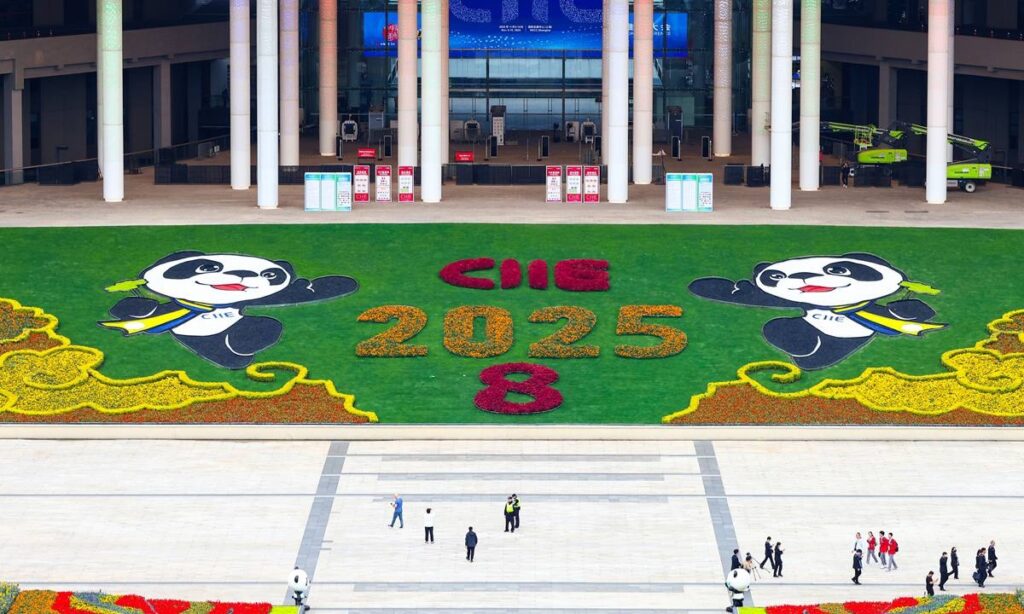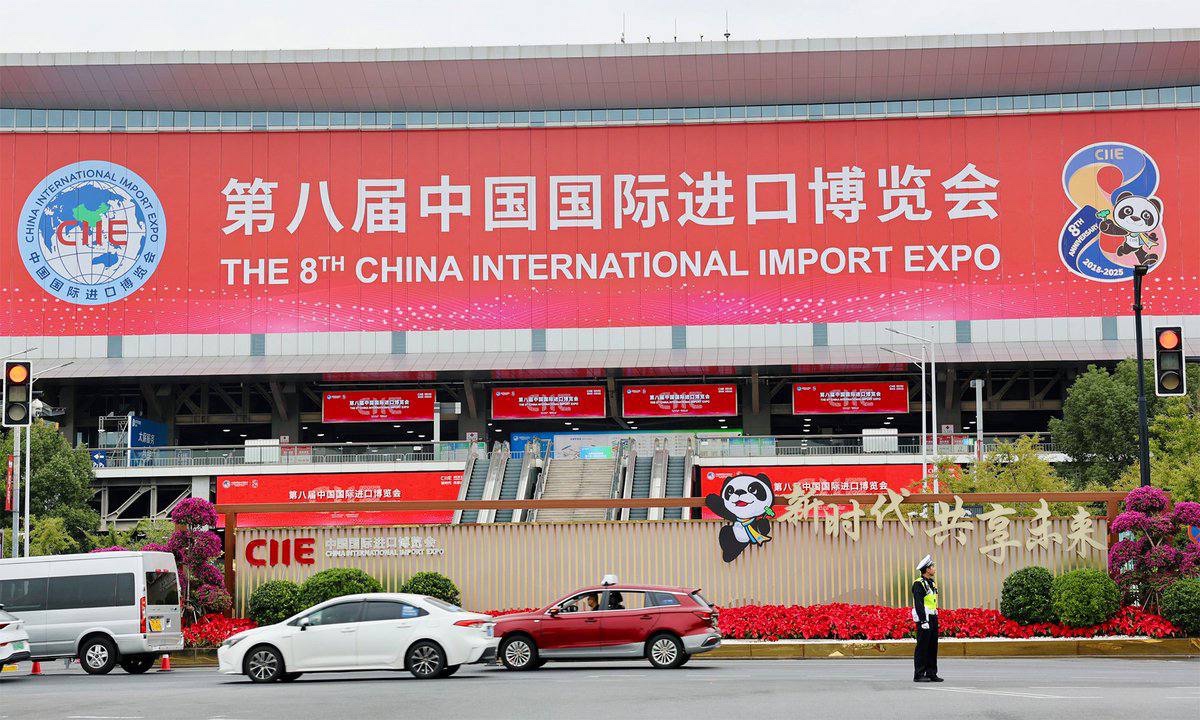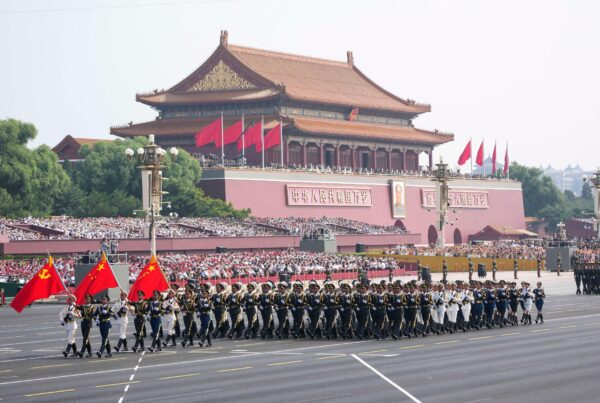China’s Big Market initiative took center stage this week as Minister of Commerce Wang Wentao unveiled the ambitious plan in Shanghai, signaling Beijing’s intent to recalibrate its global trade image. The initiative, titled “Big Market for All: Export for China”, will feature 10 major annual trade events, each with five to six partner countries, aimed at broadening the nation’s import portfolio and strengthening global partnerships.
The launch comes just days before the China International Import Expo (CIIE) set to run from 5 to 10 November 2025 a global platform that highlights China’s role as a leading importer. Officials say the initiative is part of a broader push to demonstrate China’s openness to global trade amid concerns about the country’s large export surplus.
China’s Push for a More Balanced Trade Ecosystem
Beijing has long been perceived as a global export powerhouse, yet its import levels have lagged behind expectations. The Big Market initiative aims to counter this imbalance by promoting diversified sourcing, strengthening import partnerships, and encouraging foreign enterprises to engage more actively in China’s domestic economy.
Trade Surplus Criticism Sparks Reform
For years, China’s massive trade surplus has sparked debate among global economists. Critics argue that while China’s export machine dominates global supply chains, its import activities remain constrained. By introducing Big Market for All, the government seeks to address such concerns while signaling a willingness to enhance market reciprocity.
According to trade analysts, this program could help China reposition itself as not just a manufacturing hub but also a dynamic consumption market. This shift could ease trade tensions with major partners such as the European Union and the United States.
Link with CIIE 2025
The initiative’s timing right before CIIE 2025 is no coincidence. The annual expo, one of the largest import-themed trade fairs globally, has become a showcase for China’s commitment to international cooperation. This year’s event in Shanghai will likely feature policy briefings, business matchmaking, and new trade facilitation measures aligned with the Big Market framework.
Through this alignment, China aims to project a unified message: it is not just an exporter to the world but also an open, inviting market for international goods and services.
Opportunities for ASEAN and Indonesia
For Indonesia and its ASEAN neighbors, the Big Market initiative opens up significant opportunities. As China diversifies its import partners, Southeast Asian exporters stand to benefit from simplified access, reduced tariffs, and enhanced supply chain collaboration.
Potential Sectors for Indonesian Exporters
Indonesian companies could leverage the initiative across multiple sectors particularly agriculture, seafood, minerals, and processed goods. These categories align closely with China’s growing demand for quality imports to sustain its consumer-driven economy.
Economic observers also highlight that China’s push for greater imports could stimulate investment flows into ASEAN. The initiative might encourage joint ventures, cross-border logistics improvements, and digital trade integration, offering mutual economic benefits.
Strategic Implications for ASEAN
Beyond trade, the initiative strengthens regional diplomacy. ASEAN economies, including Indonesia, Thailand, and Vietnam, are now better positioned to negotiate trade facilitation frameworks with China. This cooperation could evolve into a multi-year roadmap for shared growth and more balanced trade relations within Asia.
Moreover, given the global volatility in supply chains, partnerships under Big Market for All can provide alternative routes and reduce dependency on Western markets a strategic move aligned with China’s “dual circulation” strategy.

China’s Broader Economic Messaging
The Big Market for All program also serves as a soft-power tool. By positioning China as a promoter of equitable trade, Beijing hopes to soften criticisms of protectionism and present itself as a reliable partner amid global economic uncertainty.
Rebuilding Trust in Global Trade
Recent years have seen global skepticism toward China’s economic practices—particularly regarding tariffs, intellectual property, and market access. With this new program, Chinese officials aim to rebuild trust and showcase progress in transparency and trade inclusivity.
Foreign chambers of commerce in China have cautiously welcomed the plan, calling it “a positive step toward market liberalization.” However, many remain watchful for practical follow-through beyond symbolic announcements.
Linking Domestic and Global Agendas
Domestically, the initiative aligns with Beijing’s goal of strengthening domestic consumption and stabilizing the yuan through diversified trade flows. Globally, it positions China as a central actor in driving post-pandemic economic recovery through inclusive globalization.
By hosting consistent trade events involving multiple partners, the government hopes to sustain foreign engagement throughout the year, not just during high-profile expos.
Outlook: New Avenues, Measured Optimism
While optimism surrounds the Big Market for All initiative, experts note that its success depends on actual policy implementation. Greater transparency in customs procedures, intellectual property protection, and fair market competition will determine whether foreign companies fully embrace the opportunity.
For Indonesia, this initiative could represent both a challenge and an opportunity a chance to strengthen export capabilities, improve product quality, and integrate more deeply into the regional supply chain that feeds the world’s second-largest economy.
China’s Big Market for All marks a notable shift in its trade diplomacy narrative one that emphasizes inclusivity, openness, and shared prosperity. As CIIE 2025 approaches, the world will be watching whether this initiative truly transforms China’s role from a global exporter to a balanced trade partner.
For Indonesian exporters and ASEAN businesses, the door to China’s vast consumer market appears wider than ever an opportunity worth exploring.
Stay with Olam News for in-depth coverage of CIIE 2025 and global trade developments impacting ASEAN economies.




